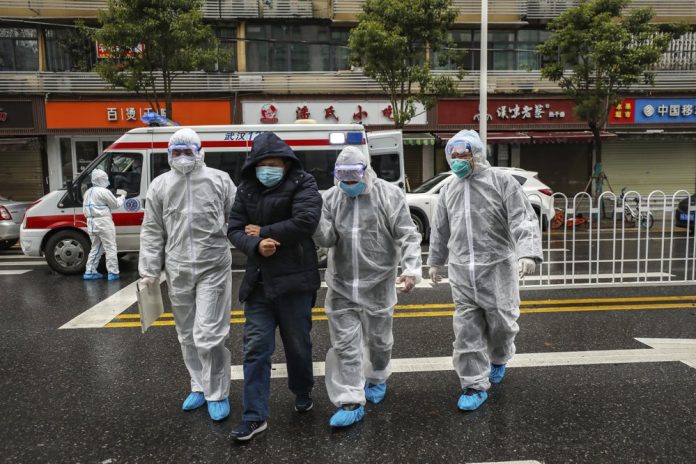Emmy Yang is a Theology, Medicine, and Culture Fellow at Duke Divinity School and a medical student at the Icahn School of Medicine at Mount Sinai. The views expressed in this commentary do not necessarily represent those of BCNN1.
From its epicenter in Wuhan, China, the current coronavirus outbreak is stoking fear and disrupting travel and business across the globe. More than 150 people have died from the virus in China alone, and more than 8,000 are infected across 20 countries—exceeding the SARS epidemic in 2003.
Citizens in Wuhan, a major central city comparable to Chicago, are under lockdown by the government and public activities have come to a standstill, including annual celebrations for Chinese New Year (which began on January 25). Chinese Christians, in Wuhan and China at large, have faced difficult decisions about whether to join the millions of Chinese who return home to visit family (as is customary during the lunar holiday season), to flee from the mainland, or even to gather for regular Sunday services.
But are followers of Jesus right to flee an epidemic when people are suffering and dying?
In the 16th century, German Christians asked theologian Martin Luther for a response to this very question.
In 1527, less than 200 years after the Black Death killed about half the population of Europe, the plague re-emerged in Luther’s own town of Wittenberg and neighboring cities. In his letter “Whether One May Flee from a Deadly Plague,” the famous reformer weighs the responsibilities of ordinary citizens during contagion. His advice serves as a practical guide for Christians confronting infectious disease outbreaks today.
First, Luther argued that anyone who stands in a relationship of service to another has a vocational commitment not to flee. Those in ministry, he wrote, “must remain steadfast before the peril of death.” The sick and dying need a good shepherd who will strengthen and comfort them and administer the sacraments—lest they be denied the Eucharist before their passing. Public officials, including mayors and judges, are to stay and maintain civic order. Public servants, including city-sponsored physicians and police officers, must continue their professional duties. Even parents and guardians have vocational duties toward their children.
Luther did not limit tending the sick to health care professionals. In a time when Wuhan faces a shortage of hospital beds and personnel, his counsel is especially relevant. The city, one of China’s largest with a population of about 11 million, is in the process of rapidly constructing two new hospitals to accommodate growing crowds of coronavirus patients. Lay citizens, without any medical training, may find themselves in a position of providing care to the sick. Luther challenges Christians to see opportunities to tend to the sick as tending to Christ himself (Matt. 25:41–46). Out of love for God emerges the practice of love for neighbor.
But Luther does not encourage his readers to expose themselves recklessly to danger. His letter constantly straddles two competing goods: honoring the sanctity of one’s own life, and honoring the sanctity of those in need. Luther makes it clear that God gives humans a tendency toward self-protection and trusts that they will take care of their bodies (Eph. 5:29; 1 Cor. 12:21–26). He defends public health measures such as quarantines and seeking medical attention when available. In fact, Luther proposes that not to do so is to act recklessly. Just as God has gifted humans with their bodies, so too he has gifted the medicines of the earth.
What if a Christian still desires to flee? Luther affirms that this may, in fact, be the believer’s faithful response, provided that no emergency exists and that they arrange substitutes who will “take care of the sick in their stead and nurse them.” Notably, Luther also reminds readers that salvation is independent of these good works. He ultimately tasks them to decide whether to flee or to stay during plagues, trusting that they will arrive at a faithful decision through prayer and meditation on the Scriptures. Participation in aiding the sick arises out of grace, not obligation.
Source: Christianity Today
All Content & Images are provided by the acknowledged source
